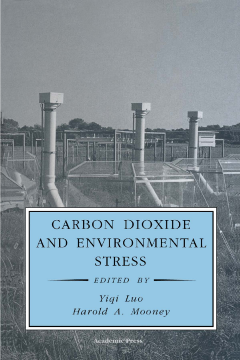
BOOK
Carbon Dioxide and Environmental Stress
Luo Yiqi | Harold A. Mooney | Luo Yiqi | Harold A. Mooney | Bernard Saugier
(1999)
Additional Information
Book Details
Abstract
This book focuses on the interactive effects of environmental stresses with plant and ecosystem functions, especially with respect to changes in the abundance of carbon dioxide. The interaction of stresses with elevated carbon dioxide are presented from the cellular through whole plant ecosystem level. The book carefully considers not only the responses of the above-ground portion of the plant, but also emphasizes the critical role of below-ground (rhizosphere) components (e.g., roots, microbes, soil) in determining the nature and magnitude of these interactions.
* Will rising CO2 alter the importance of environmental stress in natural and agricultural ecosystems?
* Will environmental stress on plants reduce their capacity to remove CO2 from the atmosphere?
* Are some stresses more important than others as we concern ourselves with global change?
* Can we develop predictive models useful for scientists and policy-makers?
* Where should future research efforts be focused?
"The book's objectives are to summarize our current understanding of how CO2 interacts with the individual environmental stressors listed above, and to stimulate future research, particularly at the ecosystem level. As with other books in the series, this volume will be an important primter and point of departure for many investigators, particularly students and those relatively new to global change biology. Those more familiar with the primary literature will still find this collection of papers useful, not only for review and reference but also, I expect, for teaching purposes. Most chapters in the book are well-organized and well-written, and a few chapters are written with a refreshing clarity and directness of purpose. ...the most important message from this book, that we need to think of in terms of atmospheric CO2 and other environmental changes as interdependent, formative aspects of and responses to the larger phenomenon of global change, and work toward integrating our CO2 research accordingly."
--ECOLOGY
